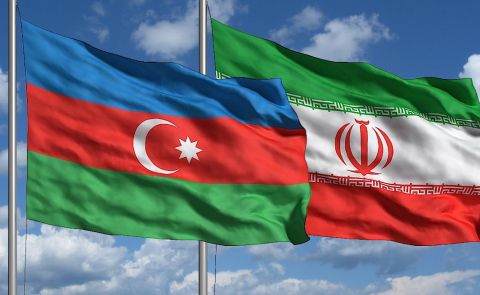
Azerbaijan Calls for Regional Cooperation to Combat Caspian Sea Climate Crisis

On June 3, Mukhtar Babayev, Azerbaijan’s Presidential Representative on Climate Issues and COP29 President, called for intensified regional cooperation with Central Asian countries to address the climate crisis affecting the Caspian Sea.
Babayev emphasized that Azerbaijan has integrated artificial intelligence into national programs to enhance regional collaboration in climate science, describing the development of shared scientific capacity as a critical first step toward a unified agenda for tackling climate change. "The global landscape is evolving rapidly, with new technologies and scientific advances offering better tools for decision-making. Artificial intelligence, for instance, can improve forecasting and scenario modeling," Babayev stated.
He underscored the global significance of actions within the Caspian region, noting their potential influence on international climate policy. Highlighting the shared ecosystem of Central Asia and the South Caucasus, Babayev pointed to severe climate challenges, particularly escalating water scarcity, which has intensified desertification and reduced water levels in the Caspian Sea, Aral Sea, and Iran’s Lake Urmia.
Babayev described the drying of the Caspian Sea as one of the region’s most urgent environmental crises, noting that at the recent Nevsky International Environmental Congress, Azerbaijan proposed convening a summit to address the issue. He warned, "The Caspian Sea’s water level has now fallen below the lowest level recorded since the 19th century," adding that experts predict continued decline over the next 15–20 years.
He highlighted the crisis’s severe impact in Kazakhstan’s Atyrau and Aktau regions, threatening agriculture, infrastructure, marine energy operations, and ports. Babayev argued that, while the situation cannot be reversed quickly, coordinated regional action is essential—particularly initiatives to protect biodiversity and restore water flow from major rivers such as the Kura, Ural, Terek, Samur, and Volga, all of which have experienced significant reductions.
Babayev also warned of the risk of regional competition amid growing water scarcity and stressed the need for a unified political approach among Caspian states to prevent tensions and harmonize environmental strategies. "The Aral Sea serves as a stark precedent; its desiccation triggered not only environmental degradation but also social upheaval, including mass migration. Our focus must now be on mitigation and adaptation," he emphasized.
See Also


Armenia Records 5.9% GDP Growth in 2024, Missing 7% Goal

Yerevan Balances Strategic Ties with Both US and Russia, Says Foreign Minister

FM Mirzoyan: Peace Deal with Azerbaijan Is Within Reach

Pashinyan and Erdogan Hold Call, Reaffirm Commitment to Ongoing Dialogue

